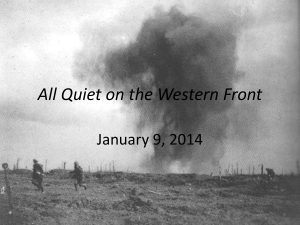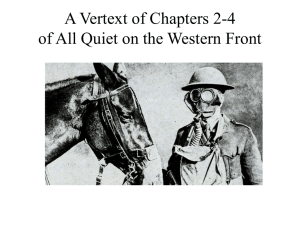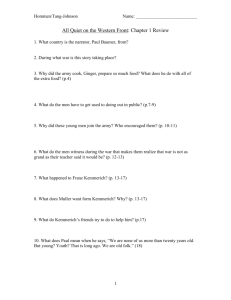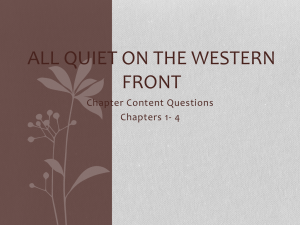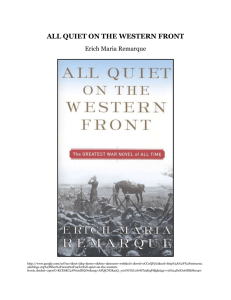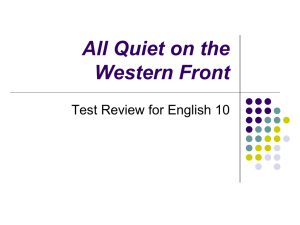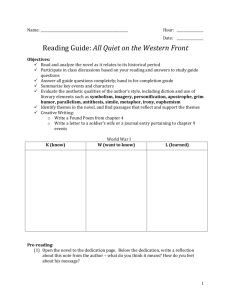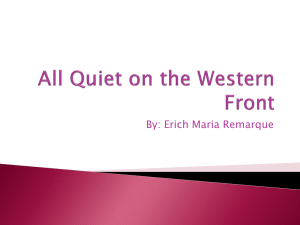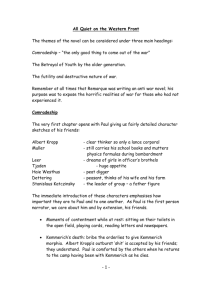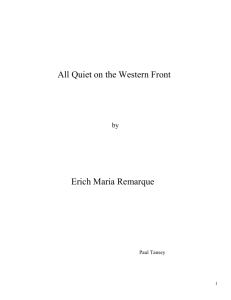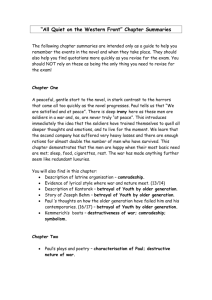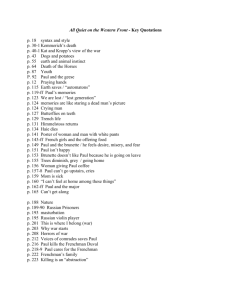All Quiet on the Western Front: Chapter 2 Study Guide
advertisement
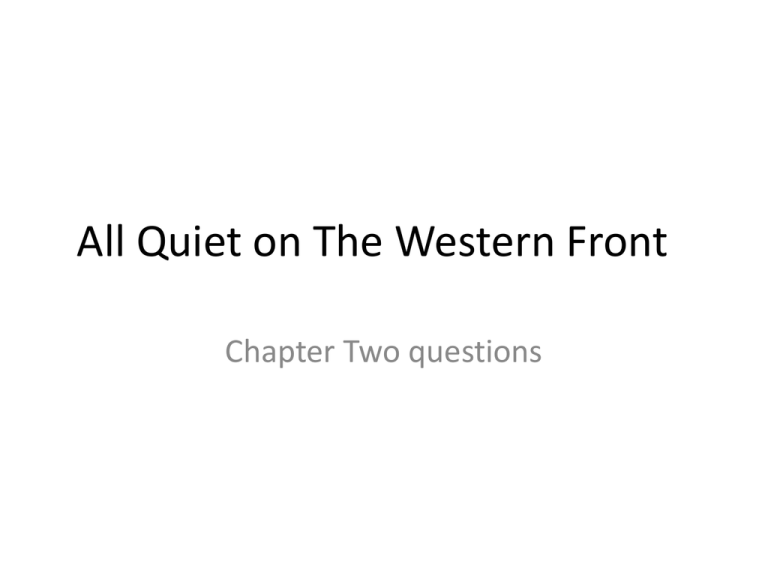
All Quiet on The Western Front Chapter Two questions • Why does Paul refer to his generation as a wasteland? – (in this edition the word is hardened) – They should be standing on the threshold of life and getting ready for all those wonderful things that await a young adult – but instead they have been ‘swept away’ and ‘hardened’ by the experience – ‘cut off’ from everything they knew before. (p14) – They are without any opportunity to have any meaningful human relationships and any opportunity to enjoy life. • Who is Corporal Himmeltoss? – The commander of the squad that Paul and his friends ended up in – Number Nine Squad. • What prejudice does Paul have against small men? Why? – Paul thinks that the ‘miseries of the world are caused by short people – they are so much more quick tempered and difficult to get on with than tall ones…usually they are complete bastards’ (p7) – Himmeltoss and Kantorek are both short men, both symbols of authority over the boys, both short men who have abused that power in some way. • How do Paul and Kropp get revenge on Himmeltoss? – They ‘accidentally on purpose’ poured the latrine (poos and wees) bucket on his ‘poshed up’ outfit. They also obeyed all of his orders but at snails pace – infuriating him. (p18) • According to Paul, what is the finest thing to arise from the war? – ‘Comradeship in arms’ – the feeling of solidarity with your fellow soldiers. (p19) • What is significant about Kemmerich’s telling Paul to take the boots for Muller? – It means that Kemmerich knows that he is going to die (and also that he was aware that Kemmerich would want them). • What is the great hunger that Paul feels after Kemmerich’s death? – It is a hunger for life - to do all those things that Kemmerich can’t do now that he’s dead. • Kemmerich's death illustrates part of the central message of the novel. What is it? – The harsh reality of war does not allow for sentimentality or charity. – Only the facts are real. – This also underscores the idea of ‘comradeship’ being so important.
